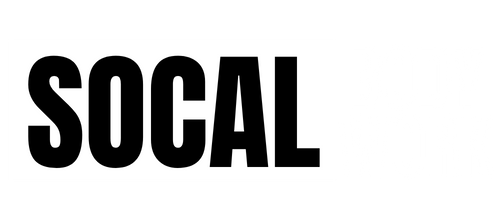Speaker of the House Mike Johnson is facing sharp internal opposition after a group of Republican lawmakers from New York publicly rejected his proposal to cap the state and local tax (SALT) deduction at $30,000, calling it insulting” and a threat to the party’s broader tax reform ambitions.
The proposal, part of a sweeping $4.5 trillion tax plan supported by former President Donald Trump and dubbed the “One Big Beautiful Bill,” has ignited tensions within the GOP. While party leaders are hoping to push through the legislation by July 4, this growing intra-party rift signals a tough road ahead.
New York Republicans Push Back
In a strongly worded joint statement, Representatives Mike Lawler, Elise Stefanik, Andrew Garbarino, and Nick LaLota all Republicans from New York made it clear that Johnson’s proposed SALT cap is unacceptable to them.
“The proposed $30,000 cap is an insult to the hardworking taxpayers of New York who are already overburdened,” said Rep. Lawler. “This does nothing to relieve the pressure on middle-class families in high-cost areas.”
The SALT deduction, which allows taxpayers to deduct state and local taxes from their federal taxable income, was sharply limited to $10,000 under the 2017 Tax Cuts and Jobs Act. While many Republicans have supported keeping the cap, lawmakers from high-tax states like New York, New Jersey, and California have pushed for its full restoration.
A $30,000 cap, critics argue, still falls short of providing meaningful relief to constituents in these states, where property taxes and local levies can significantly exceed that threshold.
Broader Republican Divide
The rejection from New York Republicans is just one symptom of the deeper divisions within the party over the massive tax package, which aims to make the 2017 tax cuts permanent, lower corporate tax rates, and expand credits for families and businesses.
Moderate Republicans have voiced concerns about other elements of the bill, including steep cuts to Medicaid, the Affordable Connectivity Program, and green energy tax incentives. These cuts are part of an effort to offset the cost of the proposed tax reductions.
“This package is out of balance,” said one GOP aide, speaking on condition of anonymity. “We’re cutting programs that benefit real people while still pushing tax breaks for corporations.”
Meanwhile, hardline fiscal conservatives are demanding even deeper spending cuts. A group of 32 House Republicans has threatened to withhold support unless the bill includes at least $2 trillion in spending reductions to avoid increasing the national deficit. According to Congressional Budget Office (CBO) projections, the current federal deficit is expected to exceed $1.6 trillion in 2025.
Trump’s Influence and Tax Adjustments
Adding to the complexity, former President Trump has reportedly pushed Speaker Johnson to revise the proposal to make it more broadly appealing. Sources close to the matter say Trump has suggested raising the top income tax rate for the wealthiest Americans and eliminating the carried interest loophole a tax advantage often used by hedge fund managers.
Such changes could help offset the cost of the bill without requiring dramatic cuts to social programs, potentially appealing to moderates who are wary of the current approach.
Despite these suggestions, Trump remains supportive of the overall plan, which he views as a central component of his 2024 campaign platform. His influence over the party remains strong, and Speaker Johnson has repeatedly signaled his commitment to delivering a major legislative victory aligned with Trump’s agenda.
Speaker Johnson’s Challenge
Johnson is now tasked with navigating a political minefield. On one side are fiscal hawks demanding austerity; on the other are moderates and swing-district Republicans worried about the electoral fallout of cutting popular programs or ignoring high-cost-of-living states.
“We’re working with members from across the conference to ensure this package reflects our shared conservative values while addressing the concerns of all Americans,” Johnson said in a brief statement. He did not directly address the New York delegation’s criticism.
House Republicans are hoping to move the legislation through committees by early June, giving them time to negotiate changes and secure a vote before the July 4 deadline. But the path forward remains uncertain.
If negotiations fail to reconcile the competing demands of different GOP factions, the bill could be delayed or even collapse a major blow to Speaker Johnson and the party’s legislative agenda.
What’s Next
As the House returns from recess next week, leadership faces growing urgency to find common ground. Key committees, including the House Ways and Means Committee, are expected to review revised versions of the bill. Lawmakers on both sides of the aisle will be watching closely to see whether Speaker Johnson can hold his caucus together or whether this tax reform effort goes the way of many before it.









